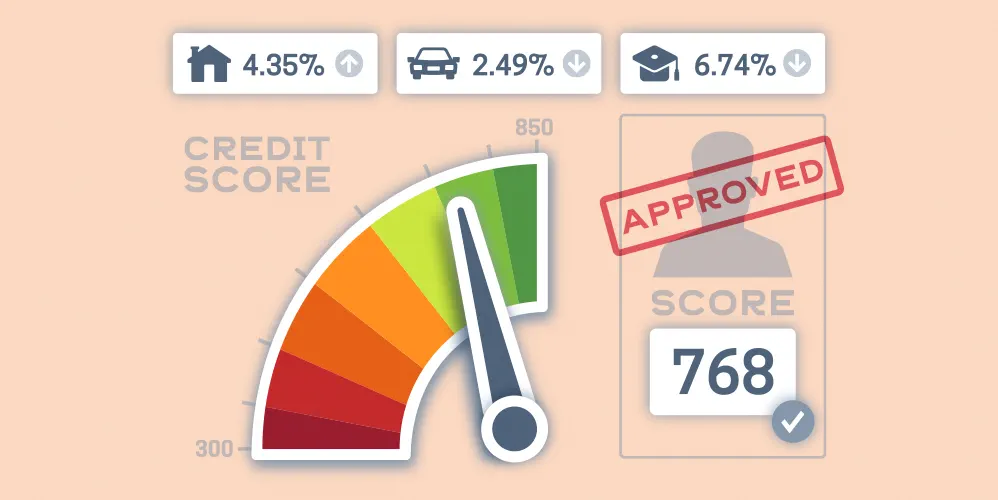
Benefits of Education Loan To Raise Funds
10 Nov 2022

Table of Content
Benefits of Applying for Education Loan
- The interest rate on education loans is lesser than on personal loans.
- Education loans come with a moratorium period, the time until which the EMIs don’t start or the student is not required to make any payments to the bank.
- Education loan interest subsidy schemes by GOI gives the waiver of the education loan interest charged during the moratorium period to the economically weaker section
- Section 80E of the Income Tax of 1961, enables the borrower to avail of the education loan income tax exemption.
What are the Tax Benefits of Education Loan?
As the cost of education continues to sky-rocket, students have little choice but to take out an education loan. Thankfully, the government offers some respite on education loans in the form of education loan tax benefits. Here’s all you need to know about education loan tax benefits under Section 80E of the Income Tax Act:
• Section 80E of the Income Tax Act of 1961
Students intending to take a loan for higher studies, also known as an education loan, can avail tax deductions under Section 80E of the Income Tax Act of 1961. This section of the IT Act specifically caters to education loans. Students may avail education loan tax exemptions for pursuing higher education in India or abroad.
Students who’ve opted to go abroad for higher education often incur higher expenses as compared to those pursuing higher degrees in India. Apart from paying high tuition fees, they also have to incur costs such as boarding or dormitory charges, travel costs, purchasing study materials and equipment (engineering boards, laptops, etc.) Keeping all these expenses in mind, the government introduced Section 80E of the IT Act. Under this section, students can avail some relief in repaying the interest component of their education loan.
• What is covered under Section 80E?
- Under Section 80E of the IT Act, students can avail income tax benefit on education loan, when they become taxpayers.
- The tax benefit is extended on the interest portion of their education loan under Section 80E.
- The 80E specific deduction does not apply to the principal loan amount.
- While calculating the annual taxable income, students can deduct the entire amount paid as interest, while repaying the loan, i.e. the interest amount paid against the education loan is not taxed.
- You can avail deductions on the entire interest component of the loan.
• Terms and Conditions under Section 80E
To avail education loan deduction in income tax under Section 80E, you need to consider the below terms and conditions:
- You can avail tax deductions on education loans taken on behalf of your children (biological and adopted) or your spouse.
- Under 80E, you may also avail the deduction if you are the legal guardian of the student.
- You can avail 80E deductions only if you have applied for the loan from a recognised financial institution like a bank or an NBFC, or a charitable institution.
- You may not avail 80E deductions if an employer or a relative sanctioned the loan.
- 80E deductions are applicable only for individuals availing the loan and not Hindu Undivided Families (HUFs). Companies or firms can also not avail 80E deductions.
Final Word:
Today, most students have to rely on education loans to get into a good school. Keeping this in mind, the government also offers student loan tax deductions of ₹150,000 on the principal loan amount under Section 80C of the IT Act.
Popular Articles
What's the Difference Between a Gold Loan and a Loan Against Property?
Related Articles










Guide to Getting Agriculture Loan: Application, Eligibility & Required Documents
-
Disclaimer
The contents of this article/infographic/picture/video are meant solely for information purposes and do not necessarily reflect the views of Bank of Baroda. The contents are generic in nature and for informational purposes only. It is not a substitute for specific advice in your own circumstances. Bank of Baroda and/ or its Affiliates and its subsidiaries make no representation as to the accuracy; completeness or reliability of any information contained herein or otherwise provided and hereby disclaim any liability with regard to the same. The information is subject to updation, completion, revision, verification and amendment and the same may change materially. The information is not intended for distribution or use by any person in any jurisdiction where such distribution or use would be contrary to law or regulation or would subject Bank of Baroda or its affiliates to any licensing or registration requirements. Bank of Baroda shall not be responsible for any direct/indirect loss or liability incurred by the reader for taking any financial decisions based on the contents and information mentioned. Please consult your financial advisor before making any financial decision.
A Step-by-Step Guide to Apply For an Education Loan
We have all heard the age old saying that the path to a great career and successful life is paved through a quality education. Holding a higher education degree opens up many career avenues and helps you secure your financial future. But with the ever-rising cost of college and university fees, students and parents have no choice but to take on an education loan to fund higher studies. Education loans cover a host of expenses related to higher education such as the tuition and examination fees, hostel fees (if applicable) cost of books and apparatus, conveyance charges and so on.
Benefits of Personal Loan To Raise Funds
There are times in everyone’s life when there is a sudden need for money. The immediate choice is generally to use a credit card or to borrow money from friends or family members.
With net-banking now in place and more lenders chasing fewer borrowers, raising money through other sources is now possible at a faster pace.
Gold loans are normally a preferred and cheaper source of the loan, where banks and gold loan companies process the papers fast to give the borrowers the money he or she needs. However, personal loan are now being offered at a faster speed too. There are lenders who advertise that they will disburse the loan within a day.
Under such circumstances, it is always better to go in for a personal loan rather than using your credit card to meet any emergency need. Firstly, because the personal loan is far cheaper than any credit card loan and secondly because the personal loan can be of a bigger size than what the credit card can offer.
But before one takes a personal loan it is important to have a good CIBIL score. With a CIBIL score of over 750, a person can be choosey in picking up the personal loan with the lowest interest rates. A person with a lower score may still get a personal loan but the interest rates may be higher.
The biggest advantage of a personal loan from the point of view of the borrower is that it is an unsecured loan. The borrower need not pledge or mortgage any of his assets to raise funds.
For an entrepreneur, a personal loan can act as a stop-gap arrangement till he is able to raise money from other sources to meet his urgent business requirements.
Like any loans, personal loans need to be repaid periodically in equated monthly installments (EMI). These loans can run from a short tenure of one year to a four-years loan. These days there are lenders who offer personal loans for a period of seven years also.
While taking a personal loan is easy, it should be taken only in case of emergency. Personal loans, being unsecured are costly. It would be foolish to buy an asset with a personal loan, especially when there are financial products available these days to buy a mobile or any other household equipment.
One should avoid using personal loans to repay loans that are cheaper in cost. But they can be used to repay higher cost loans like credit card bills or something similar.
If one is using personal loan to meet the operating expenses of the house then he or she is falling in a debt trap. One loan will lead to another and before the person understands it, he would have fallen in a debt trap. Rather than using the personal loan as a saviour to come out of the debt trap the person would have fallen in it using personal loans. Personal loans should be used only for intermittent emergencies.

